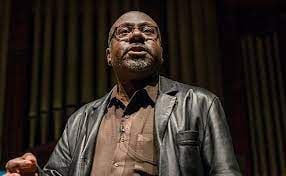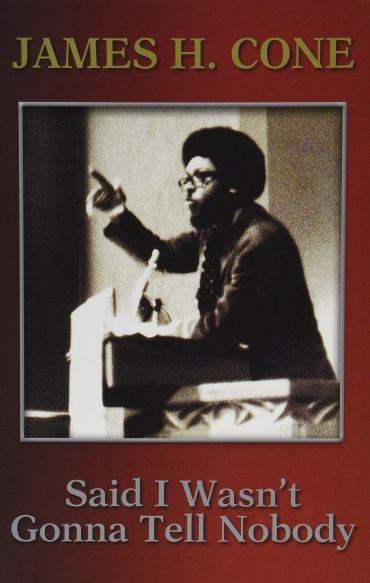
Oxford to offer new course on seminal Black Liberation Theologian, James Cone
Augustine, Aquinas, Newman, Bonhoeffer and…James Cone. Next year, the renowned ‘father’ of Black Liberation Theology joins the ranks of ‘Special Theologians’, who can be studied in-depth by senior Oxford Theology students.
 Professor Anthony Reddie
Professor Anthony Reddie During lockdown, the Research fellow of Regent’s Park College was looking through the list of ‘Special Theologians’, studied by third year Theology students. And, says Professor Reddie, he realised, ‘They are all great people, but no one was modern and no one was writing out of a contextual experience.’
Professor Reddie continues, ‘I was aghast that we are not studying James Cone when he left such a huge and important body of work [Cone died in 2018].’
He put the suggestion to a senior member of the faculty and Professor Reddie says, ‘I was pushing at an open door as it turned out.’
His idea was approved – and the process for creating the course began. And, from the next academic year, third year students will be able to opt to study James Cone with Professor Reddie.
In the US at the time, Sunday mornings were the most segregated time of the week, with people dividing on racial lines to go to church...Cone thought it was terrible that the white churches colluded with segregation
Professor Anthony Reddie
Although comparatively little known in the UK, Cone has been a major figure in US theology for decades. Professor Reddie says, ‘Cone called out racism in the existing Christian tradition. In the US at the time, Sunday mornings were the most segregated time of the week, with people dividing on racial lines to go to church.’
He adds, ‘Cone thought it was terrible that the white churches colluded with segregation.’
According to Professor Reddie, Cone’s academic career started around the time of the rise of the Black Power movement in the late 1960s and began with a 1969 work, Black Theology and Black Power.
 Autobiographical reflections, published by Orbis
Autobiographical reflections, published by OrbisProfessor Reddie maintains, Black Liberation Theology has similar foundations to Liberation Theology. He says, ‘Liberation Theology says God has a special relationship with the poor and marginalised. In the same way, Black Liberation Theology maintains God has a special relationship with the people of African descent.’
Professor Reddie maintains, Black Liberation Theology has similar foundations to Liberation Theology
He adds, ‘Black Liberation Theology looks at how Christianity became part of the colonial project and was tied into slavery…There were individuals of course, such as Wilberforce, who were Christian opponents of slavery. But the Church of England was tied into the establishment…and Christianity was used in order to make people better slaves.’
Cone, says Professor Reddie, sets down the architecture for a systematic Black Liberation Theology.
‘He was radical in terms of challenging the silence of church leaders in the face of white supremacy,’ says Professor Reddie.
Cone’s ideas were based on US specific circumstances. Many African Americans had lived in the country for centuries longer than white immigrants and would never consider themselves anything other than Americans, according to Professor Reddie. In the UK, however, he says, the colonial backgrounds of many diverse communities present different challenges.
‘There is a sense of not belonging anywhere, although that is not shared by younger people, whose parents were born in the UK,’ he says.
It is not about having “a person of colour” for the sake of it. Cone is on the syllabus because he is brilliant...Now I just have to wait to see if anyone wants to do the course
Professor Reddie
But Professor Reddie feels very much at home in Oxford. He laughs, ‘I don’t have imposter syndrome…but that’s because I came at the right time – when I was old enough not to feel intimidated. I don’t know if I would have survived at 18…but I enjoy it now.’
‘There is intellectual openness, but James Cone ticked every box,’ he says.
Having said that, though, Professor Reddie concludes, ‘It is not about having “a person of colour” for the sake of it. Cone is on the syllabus because he is brilliant.’
‘Now I just have to wait to see if anyone wants to do the course,’ he laughs.
Read more about Professor Reddie here.
 World Malaria Day 2024: an interview with Professor Philippe Guerin
World Malaria Day 2024: an interview with Professor Philippe Guerin From health policies to clinical practice, research on mental and brain health influences many areas of public life
From health policies to clinical practice, research on mental and brain health influences many areas of public life From research to action: How the Young Lives project is helping to protect girls from child marriage
From research to action: How the Young Lives project is helping to protect girls from child marriage  Can we truly align AI with human values? - Q&A with Brian Christian
Can we truly align AI with human values? - Q&A with Brian Christian  Entering the quantum era
Entering the quantum era Can AI be a force for inclusion?
Can AI be a force for inclusion? AI, automation in the home and its impact on women
AI, automation in the home and its impact on women Inside an Oxford tutorial at the Museum of Natural History
Inside an Oxford tutorial at the Museum of Natural History  Oxford spinout Brainomix is revolutionising stroke care through AI
Oxford spinout Brainomix is revolutionising stroke care through AI Oxford’s first Astrophoria Foundation Year students share their experiences
Oxford’s first Astrophoria Foundation Year students share their experiences